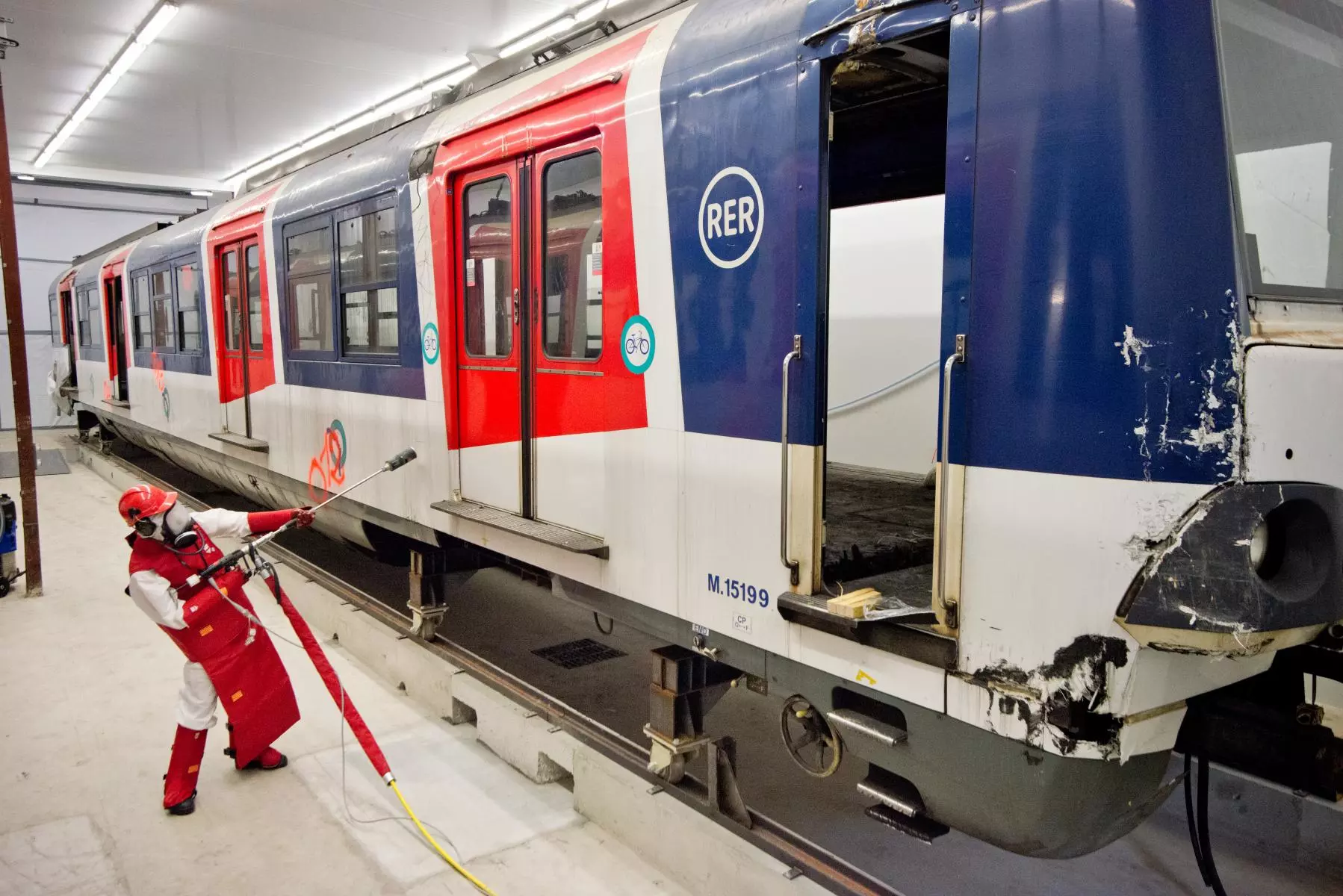AN UNPARALLELED BENCHMARK TREATMENT FACILITY IN FRANCE
To process rolling stock, Veolia has built a special clean room to deal with asbestos in a completely sealed environment and prevent any dust dispersion. The high-security facility in Torvilliers, near Troyes, was deemed a “benchmark facility” by government inspectors.
Once at the site, each carriage is stripped down to remove seats and steps, then taken to the clean room for asbestos removal by qualified specialists.

97% OF MATERIALS RECOVERED
Then the clean-up operations begin. Veolia has set up a closed-loop facility to treat water used for cleaning and ensure that any water used to clean rolling stock is filtered and treated before being used to clean other carriages. The last stage of dismantling involves removing the shell and windows. The different metals recovered are then sorted and recycled.
Veolia can recover 97% of materials used in commuter trains to produce other materials, including 85% steel, 10% other metals (copper, stainless steel and aluminum) and 2% other materials (glass). Materials recovery helps to ease the strain on resources and markets for raw materials.

Pascal Tissot
CEO of Bartin Recycling,
the Veolia subsidiary with responsibility for the deconstruction
“This contract provides a perfect reflection of the complex nature of decommissioning processes, which require a combination of technical prowess, safety and complete traceability every step of the way; everything is designed to better protect the environment.”
Customer benefits
- Comprehensive services covering everything from rolling-stock transport to recovery and recycling of secondary raw materials
- Optimal materials recovery
Solutions
- Dismantling
- Asbestos removal
- Cleaning
- Materials recovery
Learn how Veolia is resourcing the world
> See how we’re transforming waste into secondary raw materials

317 carriages dismantled, recycled and reused
Optimal materials recovery

